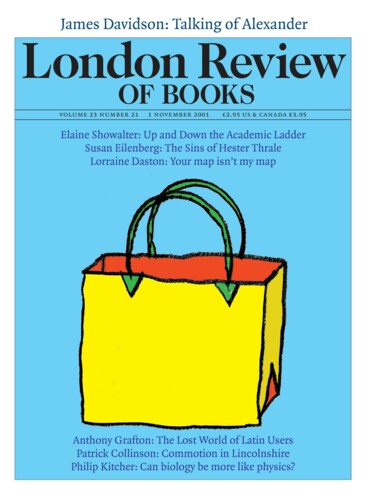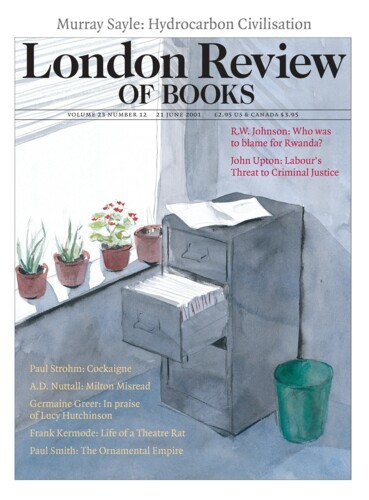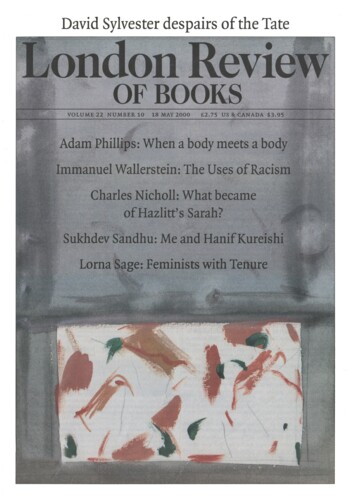Do, Not, Love, Make, Beds: Irish literary magazines
David Wheatley, 3 June 2004
For a country with one of the oldest book-making traditions in Europe, Ireland was a late arrival on the magazine scene: Tom Clyde’s first example is Swift’s Examiner, started in 1710, ‘written purely for English consumption, and reprinted in Dublin, unchanged, only as an afterthought’. A rash of Tatler imitators gave way to more nationally minded miscellanies by the...




